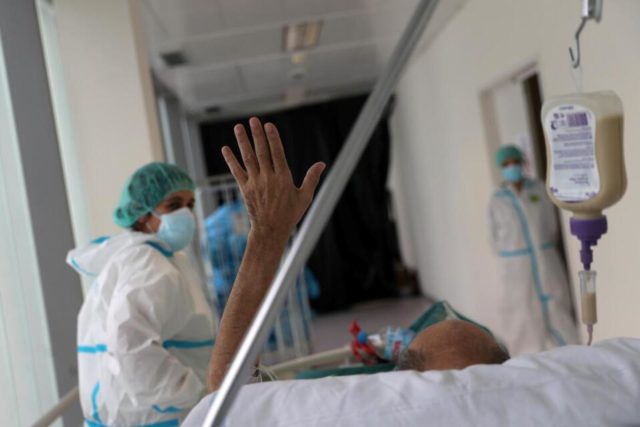This question is vital in understanding who can safely go back to work, as well as for understanding how long the worst impacts of the pandemic are likely to last.
AS WE see the devastating impact of the novel coronavirus across the globe, a new question has emerged – can you be infected after recovering from the coronavirus?
This question is vital in understanding who can safely go back to work, as well as for understanding how long the worst impacts of the pandemic are likely to last. Unfortunately, these questions cannot be fully answered because of the novelty of the virus itself.
According to scientists, it is likely that the SARS-Cov-2 induces immunity like other coronaviruses. This means that the human body will probably retain a memory of the virus for at least a few years and should be protected from reinfection, in the short-term that is.
Benjamin tenOever , professor of medicine at Mount Sinai Icahn School of Medicine in New York said that, “We do not have any reason to assume that the immune response would be significantly different from what’s seen with other coronaviruses.”
Your immune’s response to coronavirus
According TenOever, when a virus attacks cells in the body, these cells have two jobs to do before they die. The infected cells need to issue a call for reinforcements. Thus sending out a cascade of chemical signals that will activate a battalion of immune cells to come battle the invading virus.
It also needs to issue a warning to other cells around it to protect themselves, something it does by releasing proteins called interferons. When interferons land on neighbouring cells, they trigger those cells to enter defensive mode. The cells slow down their metabolism, stop the transport of proteins and other molecules around their interiors, and slow down transcription, the process by which genetic instructions become proteins and other molecules. (Transcription is the process that viruses hijack to make more of themselves.)
TenOever and some of his colleagues later found that the SARS-CoV-2 virus appears to block this interferon signal, meaning it messes with the cell’s second job. The first job (call for immune system help), works just fine, however the cells in the lungs don’t enter defensive mode and so remain vulnerable to viral infection.
As the virus keeps replicating, the immune system’s army that arrives to battle, starts doing its job: attacking infected cells, digesting debris and chemicals spewed out by dying cells, even killing nearby cells in an attempt to stop the damage.
Unfortunately, if the virus continues to penetrate lung cells, this army may do more damage than good. The lung tissue becomes hopelessly inflamed.
“At that point, it’s not about what the virus has done,” he said. “At that point, it’s about controlling the severe inflammation,” added Benjamin.
How long will the COVID-19 immunity last ?
Given the fact that the virus has only been circulating for around five to six months, there is no telling for sure how long it could last.
Chen Dong, a researcher at the Institute for Immunology and the School of Medicine at Tsinghua University in Beijing conducted a study which analyzed blood samples of 14 COVID-19 patients who experienced mild symptoms 14 days after being discharged from hospital.
Thirteen of them showed high levels of antibodies to COVID-19 indicating immune protection from immediate reinfection.
These findings concur with results from other studies of recovered patients. According to tenOever, these people aren’t infected, rather the PCR tests they take simply pick up bits of viral genetic debris left over by other infections.
Until a vaccine arrives and meets the criteria of the Centre for Disease Control (CDC) and World Health Organisation (WHO), the medical community still remains uncertain at this point with regards to a cure for the SARS-Cov2 virus.








